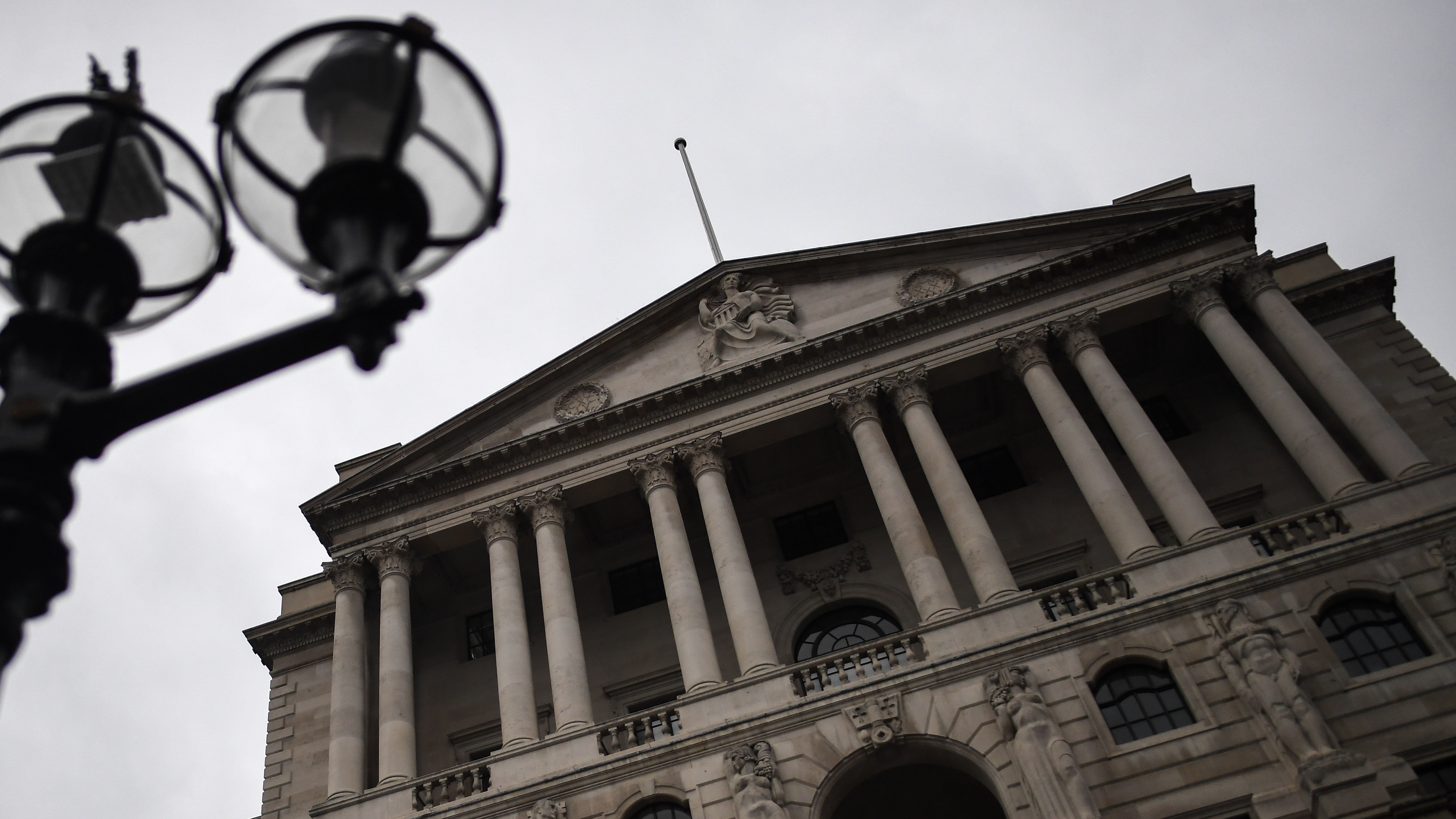Auto-enrolment pension contributions: how your pay packet will be affected
Ten million UK workers are about to see a drop in their take-home earnings

A free daily email with the biggest news stories of the day – and the best features from TheWeek.com
You are now subscribed
Your newsletter sign-up was successful
Workers across the UK may see their take-home pay fall from April as a result of changes to rules governing how much they put into their pension pots.
As many as ten million people have been signed up to workplace pensions since automatic enrolment began in October 2012.
Under the system, a percentage of pay automatically goes into a private pension fund, with employers required to contribute too - and the total amount of cash that has to be paid in is about to increase.
The Week
Escape your echo chamber. Get the facts behind the news, plus analysis from multiple perspectives.

Sign up for The Week's Free Newsletters
From our morning news briefing to a weekly Good News Newsletter, get the best of The Week delivered directly to your inbox.
From our morning news briefing to a weekly Good News Newsletter, get the best of The Week delivered directly to your inbox.
What’s changing?
From 6 April, the total minimum contribution rate paid in by you and your employer under auto-enrolment will increase from 5% to 8% of your salary.
Of this total, the minimum your employer must pay will rise from 2% to 3%. So if you and your employer both put in the minimum, your contribution will rise to 5%, says MoneySavingExpert’s Martin Lewis.
But if your employer is more generous, the effects on your pay check may be less drastic.
A free daily email with the biggest news stories of the day – and the best features from TheWeek.com
How much does that equate to in cash?
An upcoming increase in the basic tax-free personal allowance to £12,500 will “soften the blow”, says the BBC.
Nevertheless, employees on £30,000 will take home £253 less over the year if their contribution rises to 5%, while those earning £15,000 will be about £49 worse off.
Tom McPhail of investment company Hargreaves Lansdown, which carried out the analysis, told the broadcaster: “This is quite a significant increase relative to what they have been paying to date.”
Who is affected?
Employees eligible for automatic enrolment must be at least 22 years old but below state pension age, earning a salary of at least £10,000, and working in the UK under a contract of employment. If you are already paying 5% or more of your salary into your pension, you will not see a reduction in take-home pay.
Is there an up side?
Guy Opperman, minister for pensions and financial inclusions, told Parliament that auto-enrolment was designed specifically to help groups who “historically were poorly served or excluded from workplace pension saving, such as women and lower earners”.
In 2012, 60% of eligible women in the private sector did not have a workplace pension.
As of 2017, that figure had fallen to 20% and the participation rate for women in the private sector is now near equal to men, according to Opperman.
The Government “regards employee attitudes towards workplace pensions as positive, citing figures that reveal that in 2017-18, despite the total contribution rising from 2% to 5%, only 0.7% of contributors opted out of the scheme”, says free-access HR website Personnel Today.
Last week, Work and Pensions Secretary Amber Rudd told the Commons: “Workplace pensions had fallen out of fashion and were seen as the preserve of older, wealthier people. Now, saving is the norm across the UK, wherever you work.
“We will, of course, be considering how we can reach even more people – with our ambition to bring in younger workers and enable everyone, particularly apart-time and lower earners and the self-employed, to save more.”
Workers can opt out of auto-enrolment, but as Lewis notes, if you do then “in effect you’re giving up extra money from your employer”, via their pension contributions.
By contrast, the good news about the contributions hike is that “your employer is giving you even more money you wouldn’t have otherwise got”, Lewis concludes.
-
 One great cookbook: Joshua McFadden’s ‘Six Seasons of Pasta’
One great cookbook: Joshua McFadden’s ‘Six Seasons of Pasta’the week recommends The pasta you know and love. But ever so much better.
-
 Scientists are worried about amoebas
Scientists are worried about amoebasUnder the radar Small and very mighty
-
 Buddhist monks’ US walk for peace
Buddhist monks’ US walk for peaceUnder the Radar Crowds have turned out on the roads from California to Washington and ‘millions are finding hope in their journey’
-
 Six ways to boost your finances in 2026
Six ways to boost your finances in 2026The Explainer It’s not too late to make a new year’s resolution to finally get organised money-wise
-
 The financial impact of returning to work in later life – should you 'unretire'?
The financial impact of returning to work in later life – should you 'unretire'?The Explainer Many people return to the workplace after retirement age, but what could it mean for your finances?
-
 State pension underpayments: are you getting the right amount?
State pension underpayments: are you getting the right amount?feature Hundreds of thousands of women may have received less than they were owed
-
 Early retirement: what is the ‘FIRE’ movement?
Early retirement: what is the ‘FIRE’ movement?feature Younger workers are aiming to quit the workforce early through extreme saving and investment
-
 How women can bridge the gender pension gap
How women can bridge the gender pension gapIn Depth New figures have shown the extent of the problem for women in retirement years
-
 How to plug the pension gap by buying National Insurance credits
How to plug the pension gap by buying National Insurance creditsfeature A temporary change in the state pension offers a ‘golden opportunity’
-
 Are UK pensions safe?
Are UK pensions safe?Today's Big Question Bank of England governor says its debt market support must end – but the multi-billion-pound scheme could be extended
-
 Pensions: time to end the triple lock?
Pensions: time to end the triple lock?In the Spotlight Ministers must decide whether to risk alienating older voters by ending guaranteed pension rises